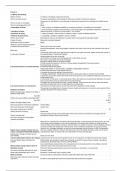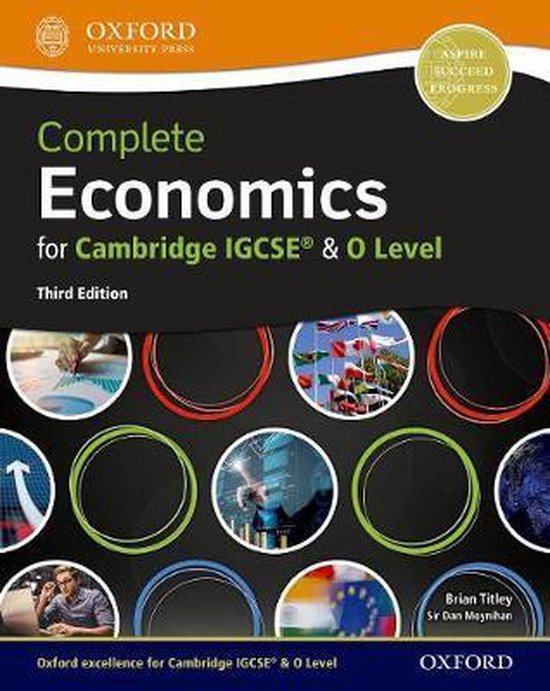Nicole Li
3.1 Money and banking
What is money? A medium of exchange of goods and services
Why do we need money? To support specialization and exchange for G&S we are unable to produce for outselves
Humans are not self efficient, so we specialise in tasks that we are good at to exchange for the G&S that we
Why do we rely on exchange? want
Term for exchanging GS for GS Barter
2 advantages of barter 1. when currency is unstable/unavailable for conducting commerce 2. immediate and not delayed
1. dual coincidence of wants must be present 2. value of GS might not be agreeable (subjective) 3. difficulty of
5 problems of barter deferred payments 4. difficulty of storing wealth 5. non divisible
4 functions of money 1. means of transfer 2. store of value 3. measure of value 4. means of deferred payment
5 features of good money 1. acceptable 2. durable 3. portable 4. scarce 5. divisible
What is near money? Bank deposits, they can be withdrawn to provide cash to make payments reasonably quickly
2 types of money Notes and coins+bank deposits
What lends money to people? banks
What can provide long-term finance for
companies and governments? Stocks sold on the stock market
financial intermediaries, which bring together customers who want to save money with customers who want to
Banks are... borrow it
Commercial banks (have many retail branches located in most cities and towns, HSBC) central bank (centre of
2 main types of banks? the banking system, The Bank of England)
Accept deposits in the form of savings.
Aid customers in making and receiving payments via their bank accounts.
Give loans to businesses and private individuals.
Buying and selling shares on customers’ behalf.
Provide insurance (protection in the form of money against damage/theft of personal property).
Exchange foreign currencies.
List some functions of a commercial bank Provide financial planning advice.
MAINTAINS STABILITY OF NATIONAL CURRENCY AND MONEY SUPPLYI
It issues notes and coins of the national currency.
It manages all payments relating to the government.
It manages national debt. Central banks can issue and repay public debts on the government’s behalf.
It supervises and controls all the other banks in the whole economy, even holding their deposits and transferring
funds between them.
It is the lender of ‘last resort’ to commercial banks. When other banks are having financial difficulties, the central
bank can lend them money to prevent them from going bankrupt.
It manages the country’s gold and foreign currency reserves. These reserves are used to make international
payments and adjust their currency value (adjust the exchange rate).
List some functions of a central bank It operates the monetary policy in an economy.(This will be explained in a later chapter)
The general and sustained rise in the level of prices of goods and services in an economy over a period of time,
Definition of inflation causing a decrease in the value of money.
What is the base rate of interest in the Bank of
England in May 2022? 1%
Apr 2023 4%
What is the current inflation rate in May 2022? 7%
Apr 2023 10.40%
What is the target inflation rate? 2%
Who is the governer of the Bank of England? Andrew Bailey
Who is the Chancellor of Exchequer? Jeremy Hunt
How many countries are in the EU? 27
What is the price of money? Interest rate
The base interest rate set by the central bank of the country which the central bank will charge banks for
What is the base rate? lending them money if they run short of cash
How many people are in the England
monetary committee? 9
When there is unemployment, the interest rate should decrease, so that the reward for saving money and cost
of borrowing money decreases. From a saver's perspective, this lowers their incentives to continue saving
money as there is less reward for doing so, and they spend it on goods and services, which ultimately promotes
economic activities and creates jobs in the economy. From a borrower's perspective, the cost of borrowing
money for e.g. mortgage decreases, so they have more disposable income to spend on G&S. Entrepreneurs
Explain how a change in interest rate can also have a higher incentive to produce more jobs as the cost of borrowing decreases, which can all reduce
reduce unemployment(with D&S diagrams) unemployment. (D&S: inc interest rate, D for G&S shifts in=P down and lose jobs)
Explain how a change in interest rate can
calm inflation Above, but vice versa
2 factors affecting the interest rate charged Longer the term of the loan and the greater the risk of non-repayment, the higher the interest rate charged
How are inflation rate and interest rate When inflation rate increases, interest rates increases so reward for saving money increases, causing less
related? spending and decreasing value of money, calming inflation.
Cover administrative costs and risks of non-repayment, and compensate banks for price inflation which will
Why do banks charge interest rates? (3 reduce the value of the money they have tied up in loans
Definition of stock Permanent financial capital raised by a joint stock company or corporation, or a government
Joint stock companies sell shares to raise... Permanent capital
What might shareholders get in return? Dividends, a small share of any company profits
What are bonds? To raise money for a fixed period of time,are repaid with interest at the end of their term
Why is the stock market and stock exchange
important? No sell=no raise capital=less economic activities=less G&S produced and supplied





